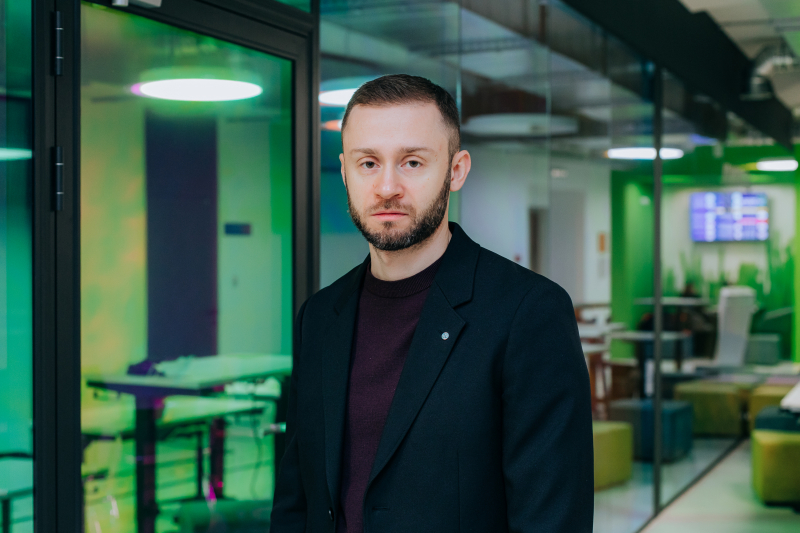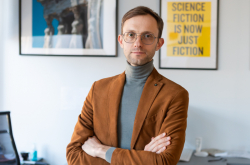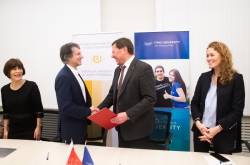Anton Barchuk, PhD, is an oncologist, MD, head of the European University’s Institute of Interdisciplinary Medical Research, a researcher at the Petrov Research Institute of Oncology and University of Tampere, a visiting expert at the Center for Science Communication, and a participant of the ITMO Fellowship & Professorship Program.
For starters, let’s clarify the terminology: as a field of study, public health sciences have a long history, but few understand what it includes and how these sciences differ from medical science itself.
First of all, it’s important to highlight that there are medical sciences and then there are health sciences, which don’t necessarily have something to do with medicine. The former are studied at medical universities, academies, and colleges. It’s a clearly defined area of study, and to graduate with a medical degree, you’ll need to attend a university that specializes in these sciences.
Meanwhile, research that focuses on health but isn’t directly carried out by medical specialists is referred to by the umbrella term “health sciences.” Another term you might often hear is “public health sciences.”
This field includes population studies, which is when we examine the propagation of disease among populations. And such research shows the difference between this sphere and the conventional scopes of biology and medicine, which usually study the processes that exist within human bodies. While medicine focuses on curing a specific person from an illness or its aftereffects, health sciences study the spread of diseases, their effects and risk factors, as well as protective factors such as the effects of drugs and other measures at the population level.
Of course, this also includes the field of health economics, which uses methods from social sciences and the latest data analysis techniques. It’s clear that today we can’t separate one discipline from another. It’s always a spectrum, not a clear distinction. There’s a lot of research today which we can’t describe as purely medical, biological, or social.
It’s vital to understand that a health sciences specialist must have data analysis skills as well as know how to understand the specifics of that data. Unfortunately, many of the people who work on health issues today don’t understand how to analyze data and make conclusions based on isolated cases.
In brief, health sciences are a whole range of diverse disciplines that aren’t medicine, but are closely connected to health.
Educational programs in public health sciences have been around for quite a while in other countries. Were there any previous attempts at similar initiatives in Russia?
Yes, there were. But, unfortunately, those were solitary instances and those programs aren’t well-known. We reviewed different cases, such as the one at St. Petersburg State University, or the one in Arkhangelsk. There were also programs at medical universities, but the intent there is different – they still train doctors, not specialists specific to this field.
Why have you decided to launch this program now?
Obviously, the pandemic has shaken everyone up. As they say, everyone’s an epidemiologist these days. But kidding aside, epidemiology is an important scientific field, and in the past year we’ve learned that not many people know a lot about it.
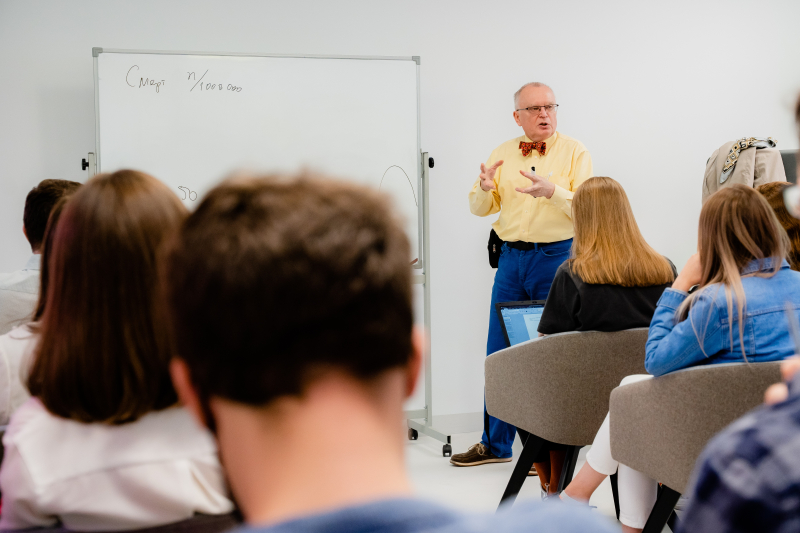
To regular people, epidemiologists are people who study infections, even though in reality theirs is a discipline that, like biostatistics and health economics, covers a wide spectrum of research within the health sciences. The pandemic has once again shown us the need for such specialists, because it has turned out that there aren’t that many truly qualified epidemiologists.
Pandemic aside, one concept that’s been gaining traction lately among doctors and patients alike is “evidence-based medicine.” But, unfortunately, very few keep in mind just what evidence this medicine is based on. Evidence is data, and you need to know how to analyze data in different ways. Practice has shown that medical specialists are less adept at analyzing data than those who have been trained to do it.
On the other hand, analysts who know nothing about healthcare, medicine, and epidemiology won’t get too far, either. That is clearly why we need specialists who can combine these competencies and know how to analyze health data properly and interpret it correctly.
What makes it easier to teach these competencies at ITMO, a university that is associated first and foremost with IT, than at a medical university?
In my opinion, today’s ITMO is, to many people, synonymous with innovation. There are many health-related technologies emerging today. It’s a whole industry. One example of this is pharmacology. Another are the many innovations in diagnostics. New technologies are being adopted by hospitals and newer, advanced diagnostics and treatment methods are coming to light.
At the same time, there is a strong need to assess them just as thoroughly as any new health-related changes. We can call these technologies innovative as much as we want, but we won’t know how useful they are until we conduct a proper study.
For instance, there is now an entire field dedicated to health technology assessment. It uses essentially the same methods as public health sciences, but focuses on technologies. The emphasis there is more on economical analysis, but nevertheless it calls for the use of epidemiological and biostatistics methods.
Did you consider cases from abroad when developing this program? Or were you intending to create it with consideration for the specific circumstances found in Russia?
The program will be taught in English, and that’s a key aspect. We believe that public health is an international field, and we don’t see Russia as being set apart from the global scientific community.
That community’s language is English. It’s no secret that scientific publications these days are only seen if they’re in English. A bright example is the Sputnik V vaccine, which received global approval once articles about it were published in Lancet.
Our goal is not to work on issues specific to Russia, but instead to use research and publications to take all the great ideas and methods found here and share them with the world.
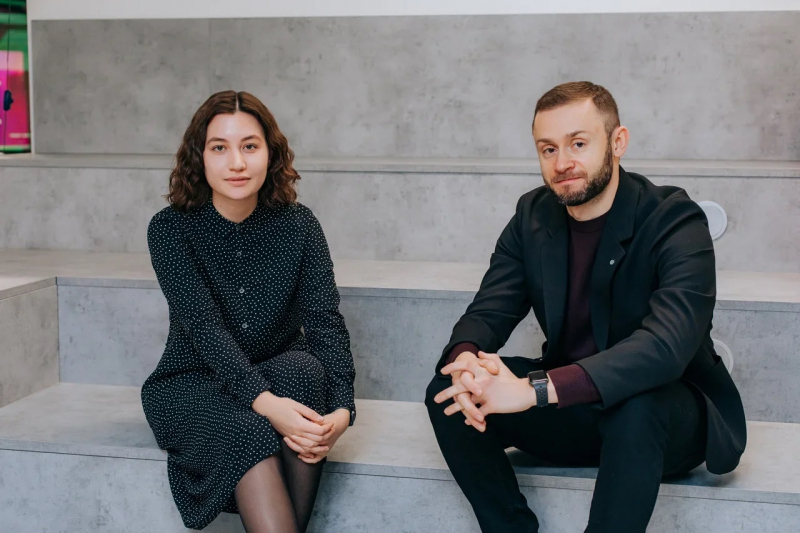
What are the fields that currently are in need of public health specialists?
Here, we can draw an analogy with bioinformatics. Bioinformatics specialists are people who know all about biology, but also wield data analysis skills. Once programs were launched that trained these specialists, it became clear that there is a demand for them. In Russia, research projects began, pharmaceutical production started, and so on.
Our situation is the same. We already understand that this discipline can fill a gap, and the pandemic has made it only more evident. For our part, we will, too, help muster demand for public health specialists and show the industry that these people are sorely needed.
Our program’s graduates have several career prospects to explore:
- Science
First of all, a great deal of clinical research currently comes from abroad. We don’t have much in terms of clinical research here in Russia. The program’s graduates will be able to conduct their own similar studies with the resources of universities. They’ll combine medical knowledge with an understanding of population research, data analysis, and how to prepare and publish such findings.
We hope to conduct our own research at various venues, including here at ITMO, and give graduates the opportunity to continue their career in academia in this capacity.
- Industry
Secondly, these research findings and the specialists’ skills will be needed by the industry that services the healthcare system. As we know, there are now a great number of private medical organizations in Russia, and we hope that our program’s graduates will get to work as analysts at these organizations and conduct research at private and state hospitals.
The development of the pharmaceutical industry is another matter altogether. There is already some research being done in the country, but we don’t think it’s enough. Graduates will be able to fill that gap by launching studies and assessing the effects of new drugs and their combinations. Besides, the development of healthcare technologies will lead to demand for specialists capable of evaluating the benefits of introducing these technologies.
- International public organizations
Thirdly, graduates can represent Russia in major international organizations, such as the WHO and others. Those who work at such organizations are typically required to have an education in public health, epidemiology, and data analysis. And those kinds of specialists are very few and far between.
Lastly, organizations in Russia are now often eager to associate themselves with the ideas of evidence-based medicine. Our graduates will probably be among the small number of those who are actually capable of navigating this evidence and interpreting the results of contemporary research.
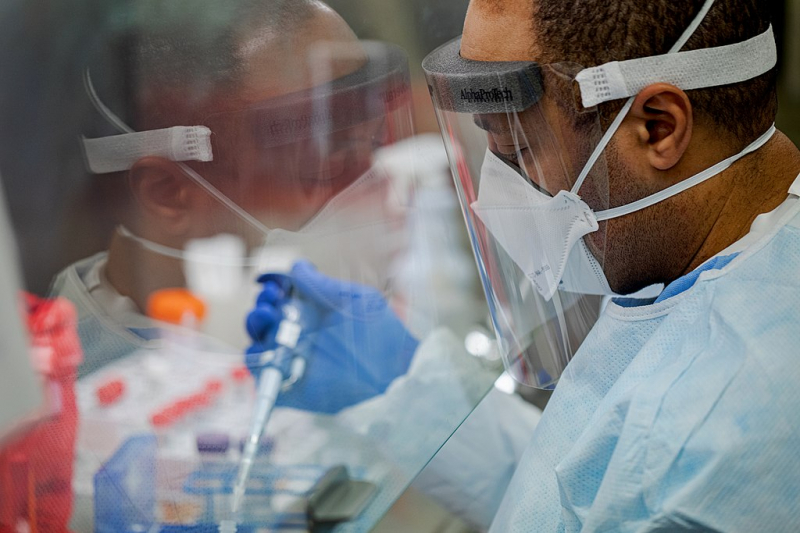
What will the educational process at the program be like?
One of our goals is to train specialists who can conduct and publish their own research in scientific journals. In essence, defending your Master’s thesis amounts to writing a paper about the results of your previous two years of research.
We aim to provide our students with practical skills and specific results that they will be able to showcase to future employers.
Of course, the supervisors will help them analyze data, write papers, and submit them to journals. There will also be theoretical classes, but all in all public health is a very practice-focused field. So even theoretical classes will be focused on real cases and the most recent research projects. The ongoing pandemic has already provided us with a multitude of subjects to study.
Who are the program’s lecturers? Which of your partner organizations will be involved?
We expect that international staff will make up a majority of the program’s lecturers. We also intend to invite European professors to deliver single lectures or short series.
We’re in close contact with our colleagues in Finland, since they’re close to us geographically, and also because my background is closely tied to that country and the University of Tampere. There will also be lecturers from Sweden and the Netherlands – nations with very well-developed health sciences communities.
We also have some great partners right here in Russia. As the director of the European University’s Institute of Interdisciplinary Medical Research, I plan to build collaborations with the European University and other Russian universities with expertise in data analysis.
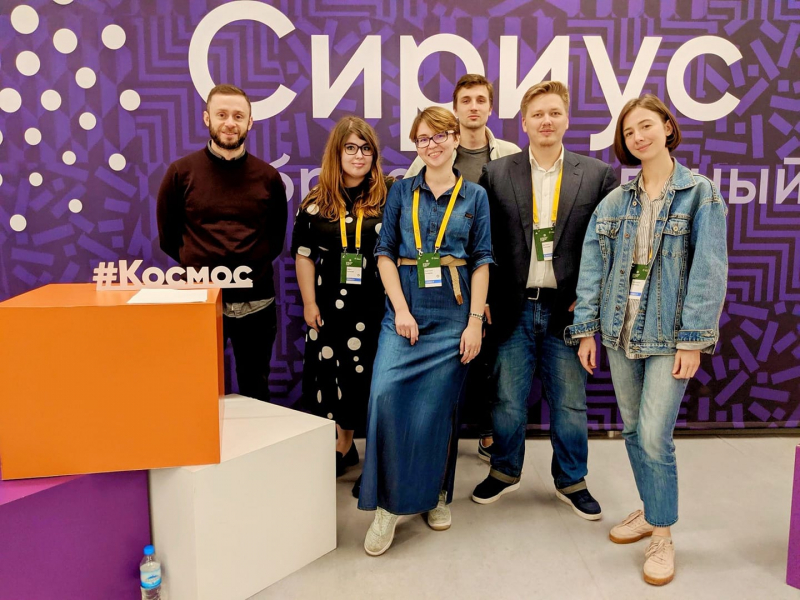
Do you plan to involve specialists from the industry?
As I’ve partially mentioned, each student will be assigned at least two supervisors who’ll help them conduct their research and prepare for the thesis defense. We want these supervisors to represent the industry: the analytics departments of certain companies, major medical networks, pharmaceutical companies with production facilities in Russia, as well as Russian medical equipment manufacturers.
In the near future, we plan to establish relations with such specialists and invite them to share their experience. I’m sure that in the future, involving members of the industry in the educational process will greatly help with our graduates’ employment.
What is the selection process? Who are your desired applicants?
This year, Public Health Sciences will exist as a separate, independent specialization as part of the Science Communication Master’s program. We expect people from all kinds of backgrounds. The program will be useful to students with medical experience who would like to gain a grasp of data analysis – or to data analysts who want to learn more about public health.
Overall, you don’t need a medical education to enroll in the program. When I studied epidemiology, about half of my peers were biostatisticians and data analysis and half were medical specialists. And it was a great combination because we were able to help each other.
We’re not afraid that our students will have different competencies; in fact, the more diverse they’ll be, the easier it’ll be for them to assist each other with complementary knowledge. The goal is to help them graduate as specialists with sought-after skills who understand how to apply them and where their career prospects lie.
Studies within the program begin in September 2021. To find out more about applying for the program, visit its page on our website or contact the Center for Science Communication at scicomm@itmo.ru.
